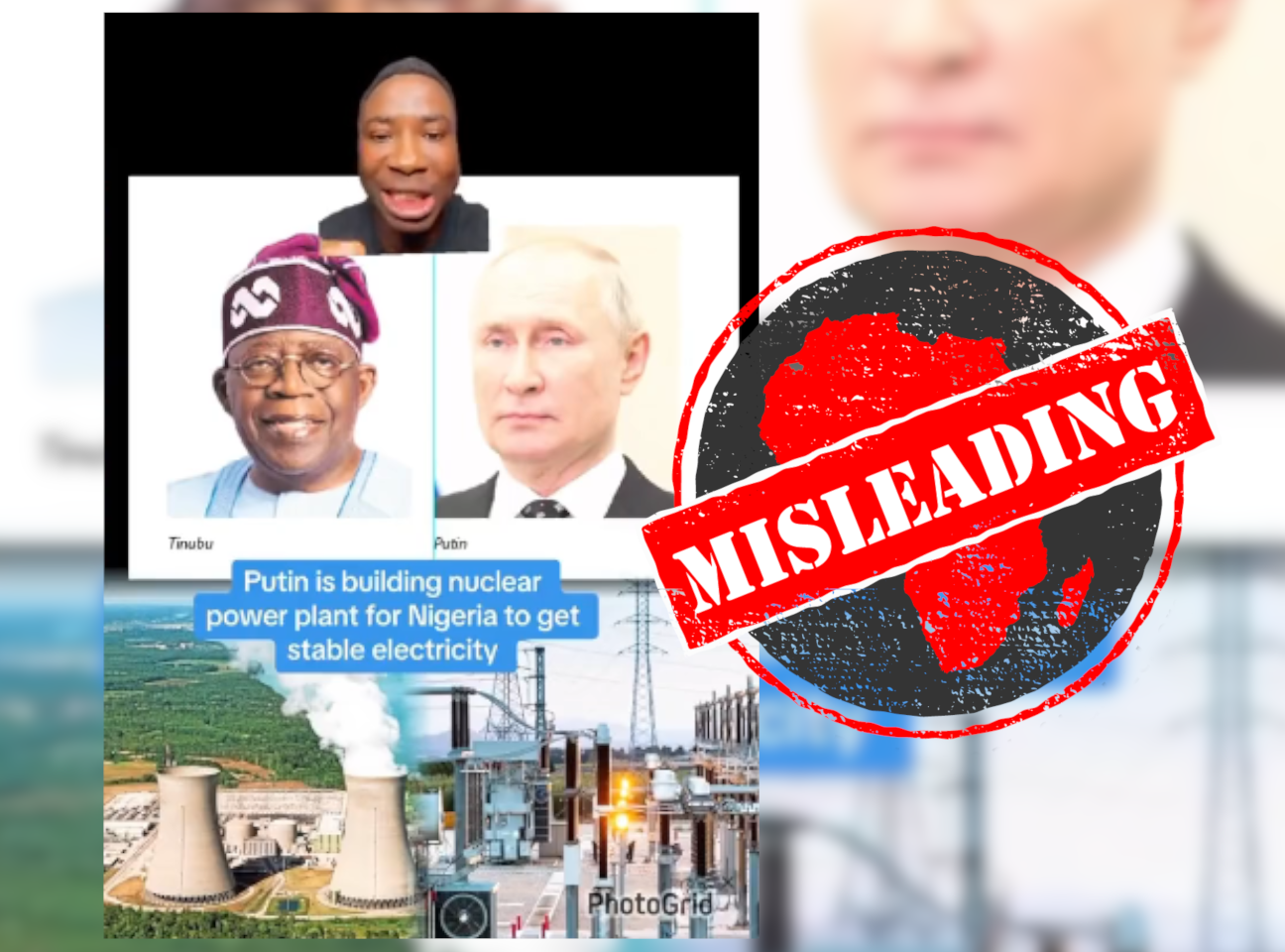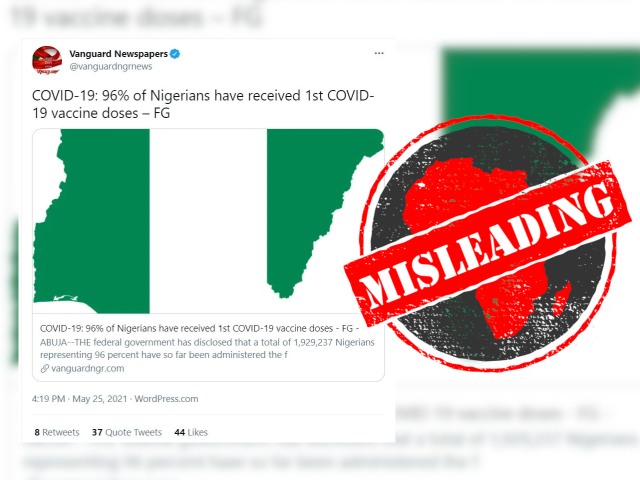IN SHORT: Nigeria and Russia have reached an agreement for a Russian company to build nuclear power plants in Nigeria. But the agreement was reached in 2017, not 2024.
Vladimir Putin, the Russian president, is building a nuclear power plant for Nigeria to provide reliable power, according to a video posted to Facebook.
The caption to the video, posted on 9 March 2024, reads: “Good news to Nigeria Putin is building a nuclear power plant for Nigeria to get stable electricity.”
The video has been viewed over 1,800 times. Another video making the same claim can be found here.
Electricity has been a major challenge in Nigeria for decades, despite the country's vast energy resources, including oil and natural gas.
The country has experienced frequent grid failures, resulting in significant disruptions or complete blackouts.
Efforts are being made to improve the erratic supply. The minister of power said in February 2024 that Nigerians’ electricity bills could rise due to growing debt. Nuclear power plants use nuclear energy to generate electricity.
But is Putin building a nuclear power plant in Nigeria, as pro-Russian sentiment continues to grow in parts of Africa? We checked.

Old report
Usually, when countries reach an agreement, it is well reported by the media. In 2019, Nigeria and China signed an agreement for a Chinese company to build railways in the country.
Putin building a new nuclear power plant in Nigeria would be big news, so Africa Check searched online for media reports about it.
Several articles from 2017 reported that Russia had signed a deal to build two nuclear power plants in Nigeria.
According to sources at the Nigeria Atomic Energy Commission, as reported by the BBC, state-owned company Rosatom would build one power plant in the south and one in the centre of the country.
At the time, it was reported that construction of the plants was expected to start by 2019. But at the time of publication, nearly five years later, there are no reports that work on the power plants has started.
In 2023 a Nigerian media house reported that Burkina Faso had signed a similar agreement with Rosatom. But the agreement between Russia and Nigeria, which has yet to be fulfilled, was reached in 2017, not 2024.
Republish our content for free
For publishers: what to do if your post is rated false
A fact-checker has rated your Facebook or Instagram post as “false”, “altered”, “partly false” or “missing context”. This could have serious consequences. What do you do?
Click on our guide for the steps you should follow.
Publishers guideAfrica Check teams up with Facebook
Africa Check is a partner in Meta's third-party fact-checking programme to help stop the spread of false information on social media.
The content we rate as “false” will be downgraded on Facebook and Instagram. This means fewer people will see it.
You can also help identify false information on Facebook. This guide explains how.



Add new comment